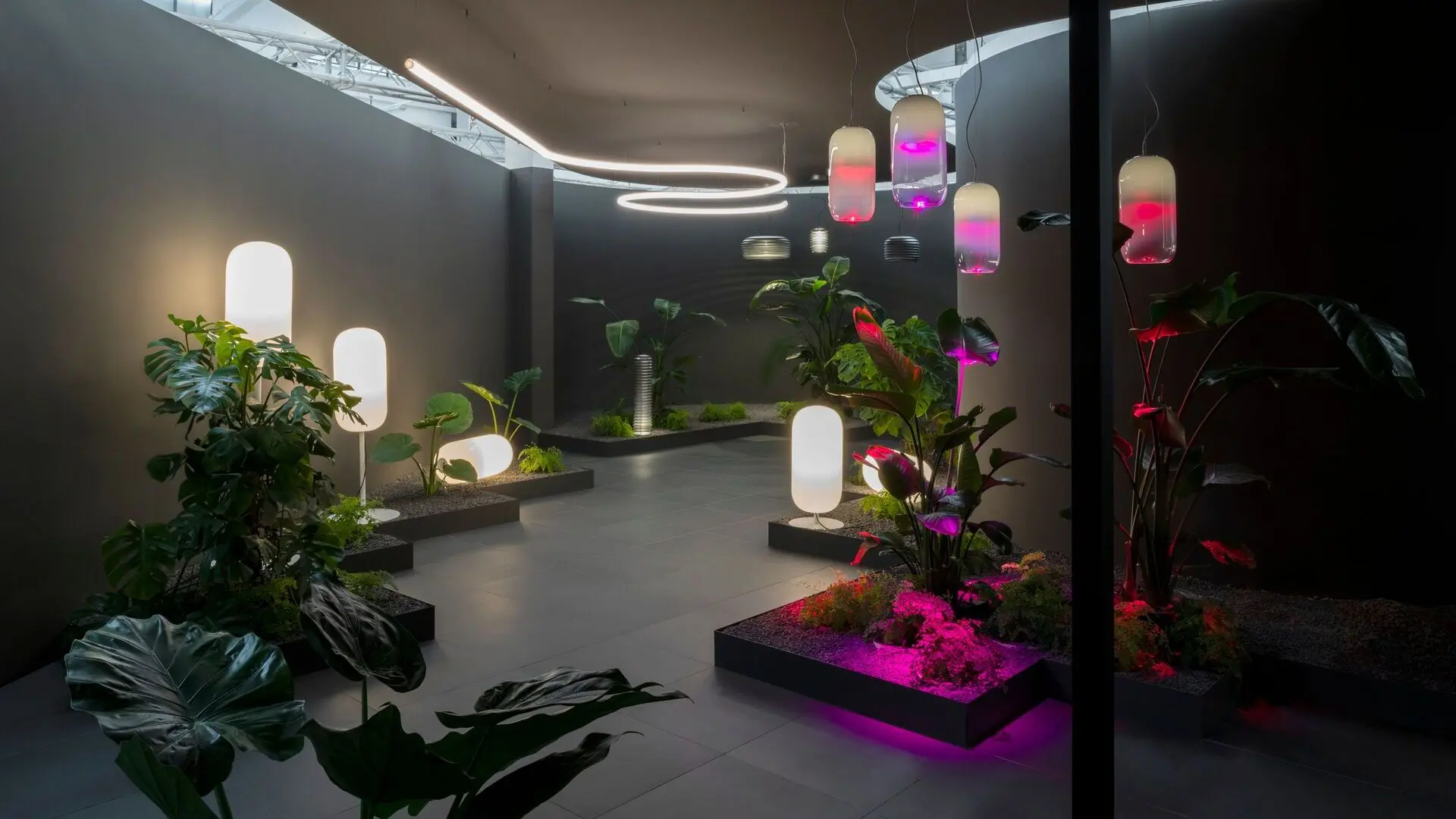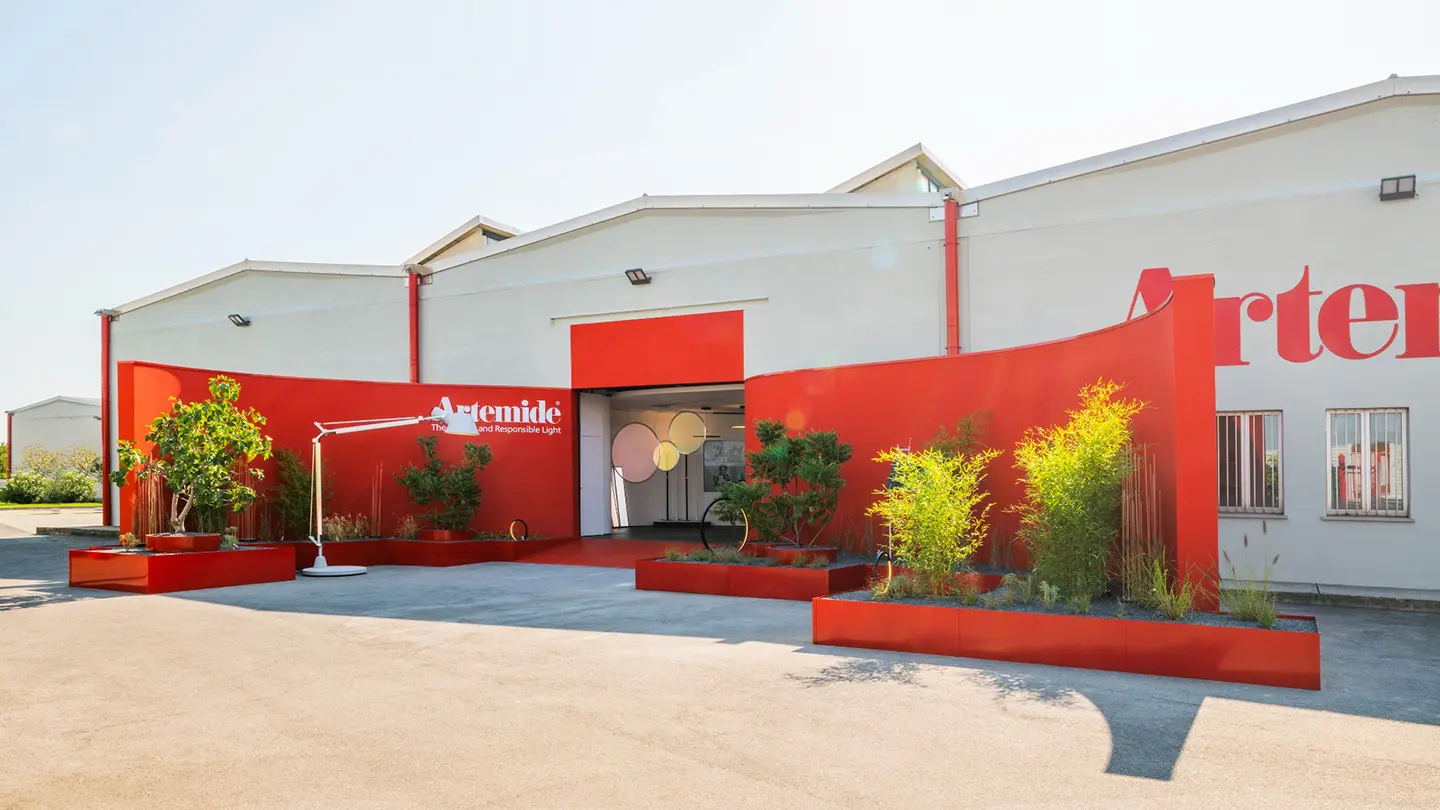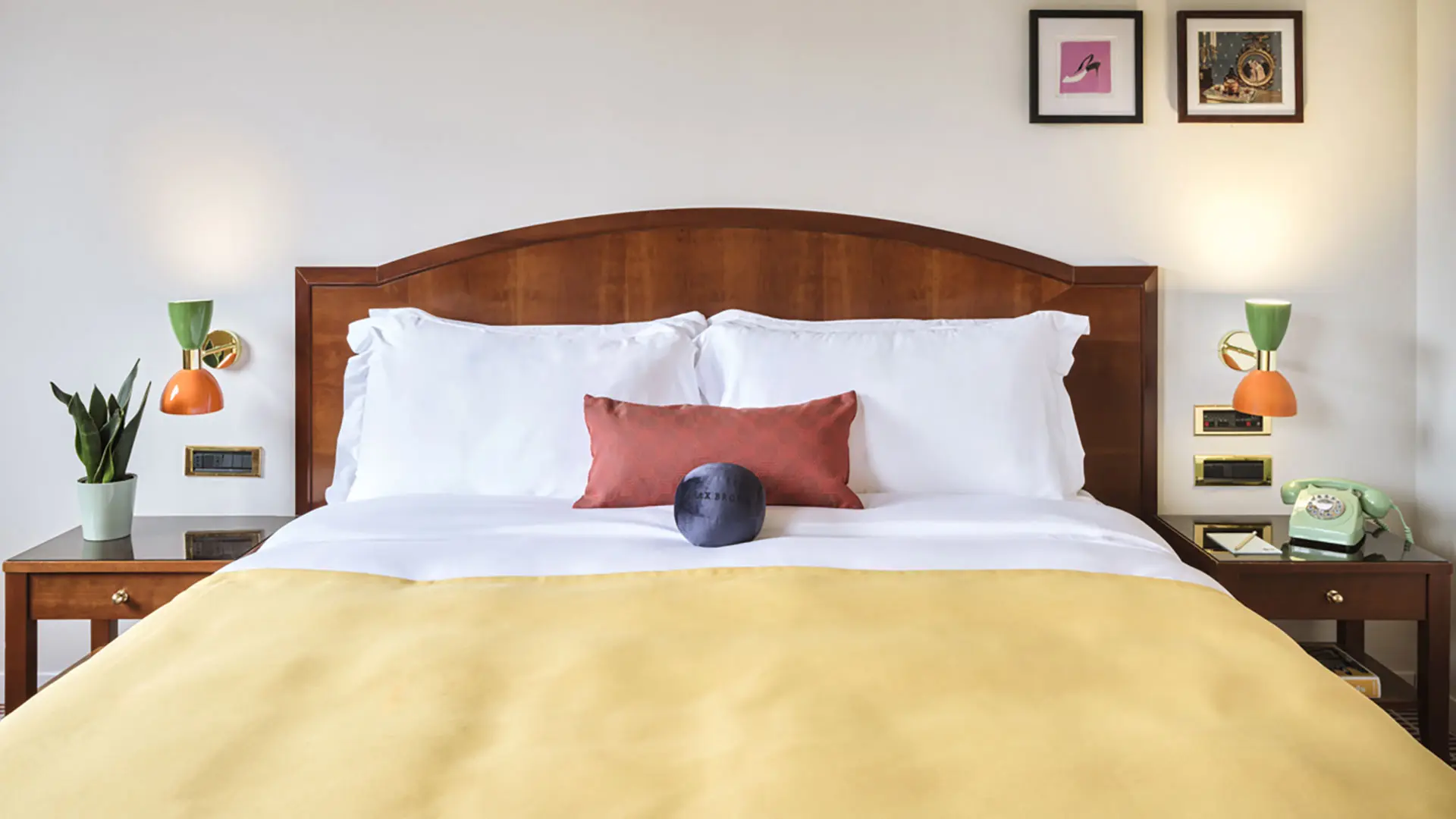In partnership with MiCodmc, a selection of establishments ripe for discovery during the 63rd edition of the Salone del Mobile.Milano, from 8th to 13th April
Sustainability Reports: good practice for ecological transition

Artemide, New Exhibition Centre, photo courtesy Artemide
The examples set by the Giorgetti Group, Artemide and Florim evidence the fact that companies today are embracing all-round commitment, in the knowledge that social and environmental impact are inextricably bound up with financial commitment
Sustainability and the furnishing world have been a subject for discussion for at least the last ten years, although it’s an issue that has, in fact, always intersected with the wider world of Made in Italy, in terms of attention to the provenance of materials, territorial links and focus on innovation and research.
This commitment has become more specific and structured over the last few years, thanks to instruments such as Sustainability Reports, useful not just in terms of setting out company values (and which often include a Code of Ethics), but also of keeping stakeholders informed about all the non-financial impacts, social and environmental in particular, as well as economic, with a view to the crucial ecological and ethical transition of the supply chain.

Gruppo Giorgetti, headquarter, photo courtesy Gruppo Giorgetti
A perfect example of this is the Giorgetti Group, which published its first Sustainability Report with its two brands, Giorgetti and Battaglia in 2019, with a view to taking a significant step towards achieving the United Nations’ Sustainable Development Goals (SDGs) by 2030.
“When we talk about sustainability these days, it’s crucial to factor in the various meanings of ‘legacy’ for the Group. These cover the environmental legacy of the natural resources we pass on to the upcoming generations, the legacy of centuries-old values and skills and the legacy represented by the products themselves, made to last over time and designed to mitigate its impact. It’s a responsibility that, over the course of 2019, made it extremely logical and natural for us to take forward the key decision to give visibility to the steps we are taking in terms of sustainability, drawing up and publishing our first Sustainability Report and becoming one of the first design sector companies to embark on this particular process. The decision is informed by the desire to give greater depth and structure to our virtuous behaviour in terms of respect for the “Environment” (in the wider sense of the word), which the Group has embraced for many years, and to bolster our dialogue with our own stakeholders by shining a light on our own environmental, social and financial performance, thus contributing to sustainable, equitable and inclusive development,” said Giovanni del Vecchio, CEO of the Georgetti Group.
The Group’s most recently published Report, which references the year 2020, focuses on the four thematic areas in particular (Financial Responsibility and Governance, Responsibility Towards People, Environmental Responsibility and Product Responsibility) on which the plan is hinged. The Report shows that the Group’s commitment takes the form of tangible actions such as providing supplementary health insurance for all its employees, and making a contribution to the local economy linked to spending on local suppliers, and careful monitoring of the company activities having the greatest impact. This led to a 11.2% drop in energy consumption related to the Group’s activities in 2020, compared with the previous year, as well as a saving of 46.9 tonnes of CO2, achieved by self-producing energy from renewable sources.
Lastly, attention has been given to product durability through the use of qualitatively excellent materials, manual processes and ad hoc technological solutions, as well as the selection of suppliers with supply chain and production process sustainability uppermost.

Florim, Florim headquarter, photo courtesy Florim
With its all-round approach to the theme of sustainability, Florim was the first porcelain stoneware manufacturer to acquire Benefit Corporation status and the only one to hold B Corp certification, and has published the 14th edition of its Sustainability Report, in which it describes the results achieved on a financial, social and environmental front in 2021, and also sets out its stated goals for the near future: “10 years after it began producing clean energy, Florim has altered its Statute, formalising its commitment to steadily evolving its business model towards a net zero emissions economy, in line with the European and national ecological transition goals. “These achievements are further confirmation that the path the company has taken sets it apart in terms of quality, sensitivity and beauty,” Florim president Claudio Lucchese said in the Introduction.
Objective zero waste, one might say, taking account of the figures – on an economic front, green investments since 2011 accounted for 50 million euros, while the environmental data show that 111,042 tonnes of CO2 were saved from emission from 2012 onwards, and that 12.8 million litres of rainwater were recovered and reused in manufacturing during 2021. Any electricity not produced internally was obtained exclusively from renewable sources with Guarantee of Origin certification. In particular, the Social Report specifies that all materials produced by Florim plants are guaranteed free of polluting emissions, do not accumulate electrostatic charges, and are fireproof. 100% of raw production waste and 100% of wastewater is retrieved in all the company’s plants. In 2021 the Italian company was in a position to differentiate and send 45,400 tonnes of waste for recycling – including by-products (fired fragments), equal to 99% of the total. 100% recycled paper is used in all its packaging, with state-of-the art packaging machines in all the Italian plants, which tailor and cut cardboard packaging to size, making for zero waste.
On the social responsibility front, a number of corporate welfare projects are up and running, ranging from projects for updating workplace health and safety to an e-Learning Cyber Security programme, the provision of art throughout its establishments, and the Health & Training Centre, a space devoted to training, research and advanced medical simulation, its activities run by the Sassuolo Hospital.

Artemide, Exhibition Centre, photo courtesy Artemide
This approach, spanning people, environment and product, is shared by Artemide: “The products and services we can offer today are expanded awareness tools, they generate sustainability by contributing to a positive energy balance in the spaces they illuminate. Artemide sets out its vision for the future increasingly unequivocally – a design approach guided by values, driven not just by scientific research and technological and productive skills but also by a humanistic and ethical perspective. Artemide is ‘The Human & Responsible Light.’ The pursuit of design that is aware and scrupulous towards man and the planet is an approach to which we aim to bear witness and quantify by means of the Sustainability Report,” writes Carlotta de Bevilacqua, President and CEO of the brand, in the Introduction to the latest Sustainability Report. The company joined the United Nations Global Compact in 2019, and its Report is testament to its vision of sustainability through innovation, in a bid to guarantee performance and aesthetics, functionality and perception also through the sustainable interaction between material, form and light – as its openness to new frontiers such as the Internet of Things and information and communication apps shows.
Whilst building its scientific and technological knowledge, the lighting company also sets out its commitment to social initiatives in its Report, along with its close links with humanistic culture through workshops, seminars and collaborations with leading modern art museums and design collections worldwide, testament to a vision of sustainability immersed in the culture of Made in Italy that also looks to a better future where emotion and beauty are concerned.
The goals discussed in the Report specifically mention the impact on employment and the economy deriving from the manufacture of Artemide products, along with the impact on people and health (with a focus on stimulating internal growth and skills nurturing, and health and safety training). It points out that these commitments must go hand-in-hand with cutting environmental and emissions impact, whilst also bearing in mind the efficiency of lighting solutions in terms of consumption, performance and management as well as the logistical optimisation of packaging material provision and finished product packaging.


 Markets
Markets










